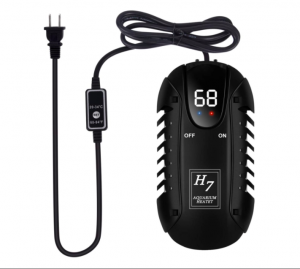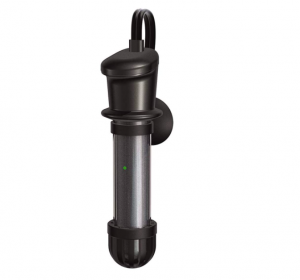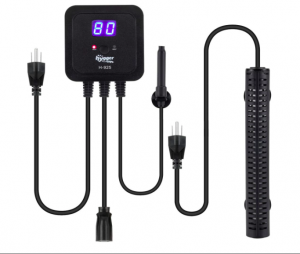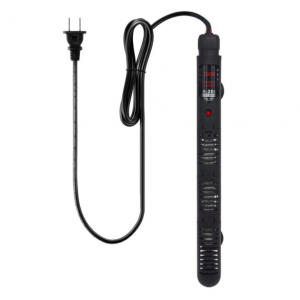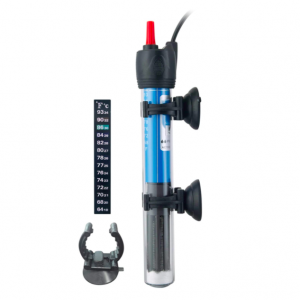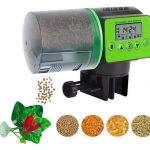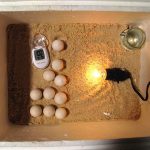Turtles
7 Best Submersible Water Heater for Turtle Tanks – Ultimate Buying Guide
As we know turtles are cold-blooded. To maintain body temperature and heat, they need external heat from the surrounding. They also need sunlight for basking. However, the sunlight in the house is not sufficient for them. Thus, to substitute this sunlight one uses UV bulbs in the aquarium, and to provide heat in the water there are water heaters available for the aquarium. However, one needs to know what factors to consider to buy a water heater for turtles.
Contents
- 1 Discover the Best Water Heater for Turtle Tanks
- 2 7 Best Water Heaters for Turtle Tanks on Budget
- 2.1 PERSUPER Submersible Aquarium Heater
- 2.2 Orlushy Mini Aquarium Heater for Turtle Tanks
- 2.3 Zoo Med Turtletherm Aquatic Turtle Heater
- 2.4 Tetra HT Submersible Aquarium Heater with Electronic Thermostat
- 2.5 hygger – Best 500-Watt Water Heater for Turtle Tank
- 2.6 Mylivell Submersible Auto Thermostat Aquarium Heater
- 2.7 Hitop Submersible Adjustable Aquarium Heater
- 3 How to Keep A Turtle Tank Warm Without A Heater?
- 4 Concluding Thoughts
Discover the Best Water Heater for Turtle Tanks
The water heaters for the turtle tanks are essential for a safe and healthy life for your aquatic pet. However, we should know what material to consider when you buy the heater for turtle tanks. So, let us see a few factors for getting the best product for your home aquarium:
The material of the water heater shall be a very important concern as the turtles are generally big in size, unlike fishes. The best choice would be the material which is metallic or thermal resistant.
These sturdy materials of the heater shall help avoid breakage and long-life of the product.
The power of the water heater (in watts) depends on size of the turtle tank and environment of the surrounding. The ideal power of heater would be 2.5-5 watts for per gallon of water tank. Well, we can sum up the power of water heater required for turtle tank as below:
20 gallons tank – 75 Watts
40 gallons tank – 150 Watts
65 gallons tank – 250 Watts
75 gallons tank – 300 Watts
Price is indeed a very important consideration when you buy any product. You want the best features with the best price. Thus, we would say check out the features of the heater over the price. This would be a long-term investment for you.
The power of the heater you need also depends on the external climate. The temperature of the water shall be between 75-86 degrees F i.e. 23.8-30 degrees C. If your house or surrounding is on the colder side, you can opt for a heater with the higher power. For instance, you can go for 75 Watts heater than a 50 Watts heater.
The big turtles can manage with cold temperatures. However, the small-sized turtles cannot. The temperature needs to be maintained for their survival. If it is too cold, their metabolism gets impacted, they cannot eat well and go into hibernation. Thus, you need to select the heater depending upon the size of the turtle you choose.
There are many additional features that should be considered like the auto-shutoff feature or a LED display which shows the temperature of the water in the tank. A protective guard for scald-preventing and punching is another feature you should look for in the turtle tank water heater.
Well, these were a few factors we listed for you to select the best water heaters for turtle tanks and we are sure you would get the right one if the above factors are considered.
7 Best Water Heaters for Turtle Tanks on Budget
Well, after considering the factors still if you are confused as to which water heater is perfect for your turtle tank, we are here to help. We shall list the best 7 water heaters for turtle tanks of different sizes and also give you the details of each of the products. The following are the best water heaters:
PERSUPER Submersible Aquarium Heater
- Suitable for square, cylindrical or bowl-shaped aquariums.
- Available in 100 Watts and 200 Watts power capacity
- Comes with anti-scald protective cover
- Temperature ranges between 68°F – 94°F
- Auto-shut off feature
Orlushy Mini Aquarium Heater for Turtle Tanks
- Available in 50 Watts, 100 Watts, 150 Watts power capacity
- Temperature ranges between 65°F – 93°F
- The power cord of 5 feet length
- Memory function to set preset temperature in case of a power cut
- Suitable for square and bowl-shaped aquariums.
Zoo Med Turtletherm Aquatic Turtle Heater
- Preset thermostat controlled heater
- The preset temperature of 78°F
- Comes in power capacity of 50 Watts and 100 Watts
- Suitable for small tanks
- LED display
Tetra HT Submersible Aquarium Heater with Electronic Thermostat
- Automatic electronic thermostat
- Comes in 50 Watts and 100 Watts power capacity
- Helps to maintain the temperature at 78°F
- Strong glass tube which is heat and shock-resistant
- The shut-off feature of electrical short is detected
hygger – Best 500-Watt Water Heater for Turtle Tank
- It has an explosion-proof quartz tube
- It comes with 500 Watts power capacity
- Double sealed black protective guard
- External temperature controller and a temperature robe
- Temperature range 61°F – 90°F
- Power cord is 10.4 inches long
- Auto-shut off feature
Mylivell Submersible Auto Thermostat Aquarium Heater
- Comes in 200 Watts and 300 Watts power capacity (with case)
- Can set the temperature between 65°F – 93°F
- The heater is made of quartz glass and double seal material
- The polarised plug which prevents electrical shocks
- The power cord is 95 cm long
Hitop Submersible Adjustable Aquarium Heater
- Available in power capacity of 50 Watts and 100 Watts
- The heater comes with 2mm thickened explosion-proof glass
- Temperature can be adjusted between 68°F – 93°F
- Comes with a thermometer sticker
- Warranty of 12 months
Well, these were the best heaters for the turtle tank in your home. Make sure you consider the size and surrounding temperature before buying the right heater for your aquarium.
Recommended Reading: How Do Turtles Breathe? #Through Their Butts #Underwater #In Winter
Note:
Make sure you unplug and let the heater rest for 10 mins before you remove it for cleaning the tank.
Also ensure, the wires attached are placed right to avoid any electric shocks.
How to Keep A Turtle Tank Warm Without A Heater?
No wonder, a heater is required in case of very young turtles. However, some turtles would do well in the normal external temperature. Still, if you see a loss of appetite and turtle going into hibernation, you may simply add warm water in the tank. As the season gets cold, you may need to add more hot water. This way you can care for your aquatic pets without a heater.
You may also place heating bulbs around the tank, so the water remains warm. Also, in summers during the day you can expose the tank to sunlight which in turn will keep the water heated. However, make sure the heating is not directly above the tank, since the pet may get overheat thus leading to other health problems.
However, if left unattended, your turtle might not get the desired heat and it may suffer from other diseases and it may also become fatal. It is not a good practice to not have a heater for your turtle tank.
Concluding Thoughts
By now, we are very much aware of which heater is perfect for your turtle tank. You need to select the right product considering the tank size and external temperature. The required amount of heat in water shall give your pet a healthy and safe life.
If you have any suggestions on the best water heaters for the turtle tank, please write to us in the comments section below.

-

 Skunk4 years ago
Skunk4 years agoWhat Does Skunk Poop Look Like? Images & Identifications
-

 Bunny4 years ago
Bunny4 years agoPregnant Rabbit Labor Signs #Test#Symptoms#Age#Length
-

 Turtles5 years ago
Turtles5 years agoHow To Take Care of Turtle Egg At Home?
-

 Turtles4 years ago
Turtles4 years ago8 Basking Rocks/ Platforms for Turtles – A Perfect Guide
-

 Bunny5 years ago
Bunny5 years agoHow to Get Rid of Mites on Rabbits? #NaturalRemedies #Video
-

 Horse4 years ago
Horse4 years agoHow Much Weight Can a Horse Carry? #Clydesdale #Friesian #Mustang #Draft
-

 Turtles4 years ago
Turtles4 years agoHow to Take Care of Snapping Turtle Eggs? #Incubating #Hatching
-
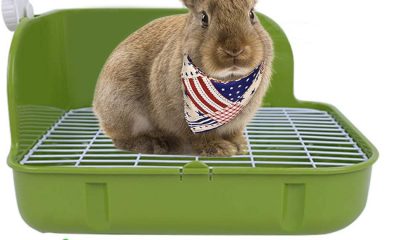
 Bunny5 years ago
Bunny5 years agoHow to Potty Train a Rabbit in House? Tips on Litter Training

